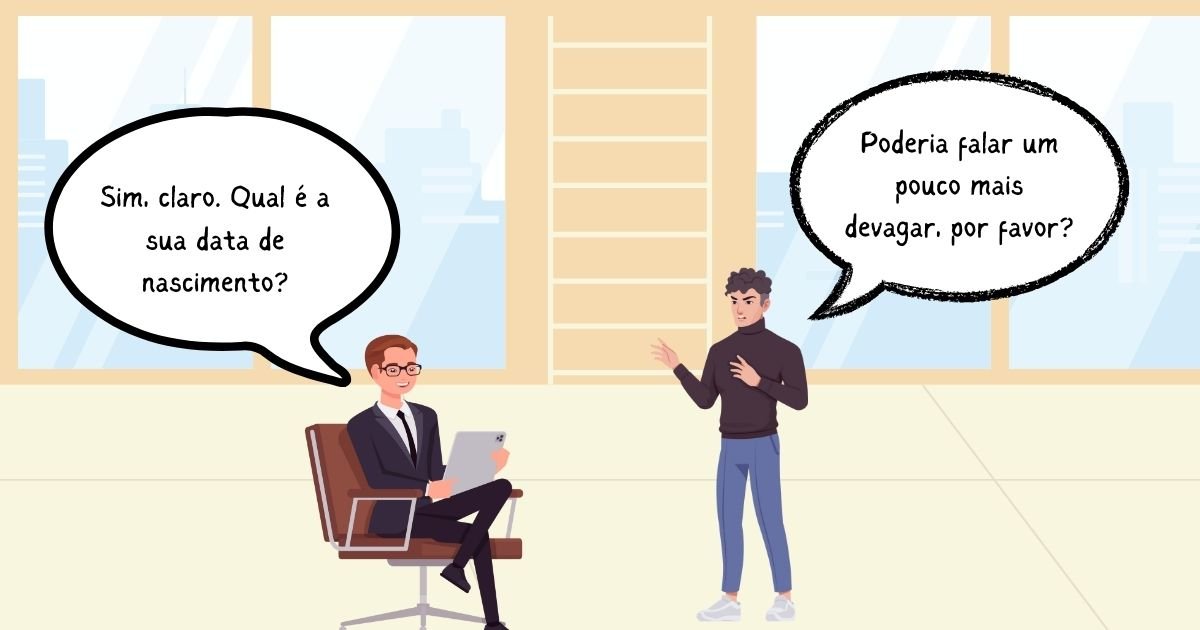
Language itself is a tool to communicate with each other. When learning a new language, it is challenging to express it in the exact way you want. I always said that language is a culture more than a translation. In my ten years of experience in Portugal, I found that most beginners are translatives rather than expressive.
Communication is critical in any language; making requests in Portuguese can significantly enhance your interaction in both personal and professional settings. When you are new in Portugal, you must ask for assistance, for some information, to express your problems, and for solutions. Whether you request help, seek information, or tell your desires politely, using the correct phrases and tone is essential.
The requesting nature shows that your culture is charming and positively impacts the person you are communicating with. A proper way to request is essential to receive a good answer and assistance. Let's explore some practical ways for beginners to make requests in Portuguese.
1. Identifying the politeness phrases:
Politeness is highly valued in any culture, and incorporating polite makers in your requests is crucial. I suggest identifying and practicing polite phrases. Frequent use of these phrases helps get an immediate and proper response from anybody you are talking to. If you need to ask for directions or the office's location, you have an appointment, and if you ask someone directly, like Onde é o ……...? The person may not answer you with a good narrative as you ask the question straight forward. So, even if you have not much more idea, if you use some politeness phrases like, Com licença Senhor or Com licença senhora, or, Se voce pode ajudar me? And then ask, Onde é o …….?, It is hard to ignore your question. And, even if they do not know, they may help you with some clues. And if you add, Onde é o ….., por favor(please), it adds more impact.
Some requestion phrases you should know like:
Com licença!
(Excuse me!)
Desculpe!
(Sorry)
Por favor!
(Please)
Como todo o respeito.
(With all due respect)
Muito obrigado/a
(Thank you very much)
Por gentileza
(Kindly)
Desculpe-me
(I am sorry)
Perdão
(Pardon)
Com sua permissão
(With your permission)
Se não se importa.
(If you do not mind)
Se faz favor.
(If you do favour.)
Some Examples:
Desculpe, pode ajudar-me?
Or
Com licença, pode ajudar-me?
Excuse me, can you please help me?
Desculpe, posso pedir ajuda?
Sorry, can I request help?
Preciso de ajuda para perceber português. Pode explicar-me isto, por favor?
I need help understanding Portuguese. Could you please explain this?
2. Employing conditional phrases:
Poderia + infinitive verb - "Could you..."
You are requesting something that requires softness and a requestive tone. One better idea is to employ conditional phrases like Poderia or Você poderia(Could you), which softens the request and makes it more courteous.
Let's see some examples:
You need a pen if you are in some office and need to fill out the form. You see, someone is filling out the form. Then you can wait until they finish and ask Por favor, você poderia me emprestar uma caneta? (Can you please lend me a pen?). Por favor adds politeness, and power creates a softness and a respectful tone when asking.
Let's see some more examples:
Desculpe! Poderia me dizer como vou para a estação?
(Sorry, could you please tell me how I can go to the station)
Com licença, poderia me ajudar com este problems?
(Excuse me, Could you help me with this issue?)
Poderia falar um pouco mais devagar, por favor?
(Could you speak a bit slower, please?)
3. Tailoring requests based on formality:
Você pode + infinitive verb ( Can you )
Sometimes, you may need to request someone with whom you are close or you know them. It may not be very practical to be very polite in this context. However, politeness and requestive expression are crucial. In this situation, you can use Você pode + infinitive verb if, in conversation, you use você to say you to each other. And, if you use Tu, you can use Podes + infinitive verb. This could be more suitable to ask or request something directly.
Let's see one example:
Você pode me ajurar com isso?
Or
Tu podes me ajudar com isso?
(Can you help me with this?
4. Polite expressions of Desire:
Gostaria de + noun or infinitive verb.
When expressing desires or preferences, phrases like Gostaria de (I would like to) help convey your wishes politely. If you are in the coffee shop to ask for coffee or in the supermarket buying something you are looking for, using Gostaria de could be more effective.
Let's see some examples:
Gostaria de uma grafa de água, por favor.
(I would like to have a bottle of water, please.)
Gostaria de pagar com cartão.
(I would like to pay with cards.)
Gostaria de comprar mais dois grafas de aguwa.
(I would like to buy two more bottles of water.)
5. Being mindful of context:
Always consider the context when making requests. Being too direct might seem abrupt in certain situations, whereas adding politeness markers could be overly formal in others. Adjust your language based on the setting and your relationship with the person you are communicating or addressing.
Mastering the nuances of making requests in Portuguese helps you communicate effectively and shows respect for the language and culture. Practice these phrases in various scenarios to become more proficient in making requests and enhance your communication skills in Portuguese.
I have included some examples that help you understand the situation and express your requestive nature politely according to the problem or context.
Desculpe, podia dizer me ..?
Excuse me, Could you tell me ….?
Descuple, Eu gostaria de saber…..
Excuse me, I would like to know.........
Com licença, sabia dizer-me …..
Excuse me, would you (know how to ) tell me ……
Por favor, diga-me….
Please tell me…
Perdão, sabia dizer-me que rua é esta?
Excuse me, Would you tell me which street this is?
Perdão, sabia dizer-me por que é que a loja está fechada?
Excuse me, would you tell me why this shop is closed?
Descuple! Poderia dizer me onde fica o gabinte de advocado?
Excuse me. Could you tell me where the lawyer's office is?
The above explanation gives you a clear idea of the power of politeness and how we can use it in Portuguese. Language is not a science but an art; thus, using the correct words in a context is essential. The more you know how to express your needs or ideas, the more effective communication is. Sometimes, a straightforward way of communication may be more effective than being very polite. However, it is always better to be polite when it is not needed than not to be polite whenever it is essential. If someone is talking to you and you need help understanding what they are saying, it is always better to let them know that you do not understand what they are saying rather than acting like you understand everything.
Good luck!

